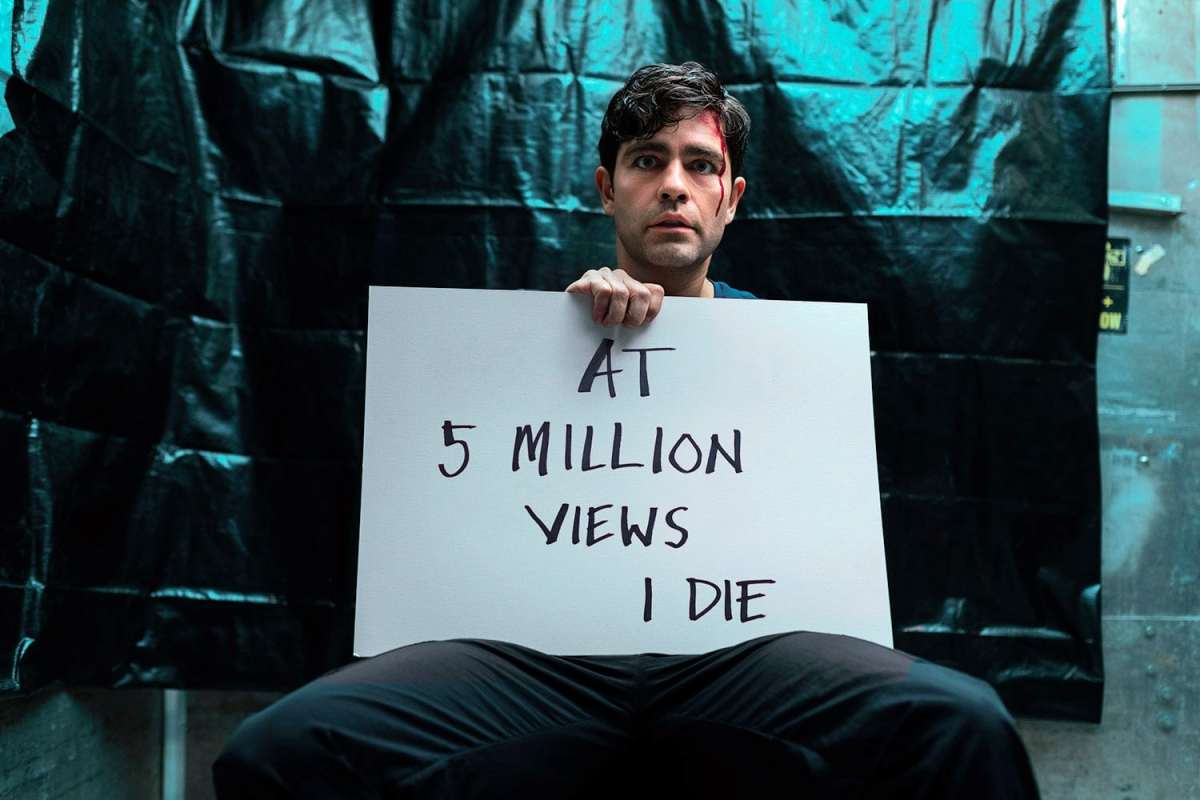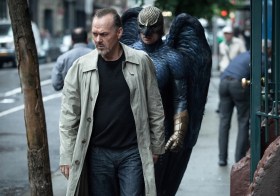While federal government investment in TV drama is increasing, Australians are receiving falling cultural and social value in return, according to the findings of a four-year study by QUT researchers.
Australian television drama hours have dropped 55 per cent since their early 2000s peak and the drama that is made is is geared more to international streaming markets, letting down the community, thanks to inadequate government policies says a new report from QUT.
Australian Television Drama’s Uncertain Future: How Cultural Policy is Failing Australians is produced by the Making Australian TV in the 21st Century Research Team within QUT’s Digital Media Research Centre and funded by an ARC Discovery Project Grant. It is written by Professor Amanda D. Lotz, Dr Marion McCutcheon, Professor Anna Potter, and Professor Kevin Sanson.
Falling TV drama: globalisation or bad policy?
While globalisation, technological change and the transforming commercial landscape have created the conditions for this situation, the report shows how government policy has failed and conspired in the fall. A stark statistic cited: ‘Over the ten years to 2023, funding for television from federal sources increased by an average of 15.6% each year, while the hours of Australian TV drama available fell by an annual average of 5.6%.’
Read: Studying two decades of queer representation on Australian TV
The report cites four main factors changing the sector and the kinds of drama being produced in Australia.
- Commercial broadcasters profoundly reduced their drama commissioning due to plummeting advertising revenue.
- Nationally-focussed industries became globally intertwined with transnational
ownership of services (Network Ten) and production companies (Matchbox,
Southern Star, CrackerJack, Screentime, Playmaker, Lingo, Werner Film Productions). - Series commissioning is increasingly reliant on multi-territory streaming services such as Netflix.
- Increasing reliance on foreign funding as a proportion of drama budgets.
Other factors contributing to the problem, according to the report, include former Communications Minister Paul Fletcher’s change to the Australian Content Standard that enabled Networks Seven and Ten to cover their drama quota obligations mostly through low-cost soaps whose audiences are largely outside Australia, as well as the removal of the requirements to produce children’s television.
Read: Energy, climate and corporate ties in Australian documentary
How Australian is it?
These debates around TV Drama are nothing new, but the report suggests we need to keep having them and being very specific about the difference between cultural objectives and commercial ones. Sometimes they co-exist, but often they don’t.
The report says that the Producer Offset and location rebates are not producing the kinds of culturally specific drama (or the quantity) of former years, and cites a number of specific examples:
‘Many of the series receiving these tax rebates are ostensibly set in Australia but tell stories that could take place anywhere. For example, Wolf Like Me (Stan, 2022-) is a romantic comedy about two Americans set in Adelaide and Lie With Me (Network Ten, 2021) is an adultery thriller set in Melbourne where a couple has recently moved from the UK. Others yet are shot in Australia but set in other places, for example, Clickbait (Netflix, 2021) and Nine Perfect Strangers (Prime Video, 2021-). These series receive as much as 30% of their spending back in tax rebates from the federal government, and often money from state governments as well. Streaming services may be spending more per hour but their lack of meaningful engagement with any aspect of Australian society raises the question of what value the Australian community specifically receives from those funds.’

QUT researcher Professor Anna Potter said the failure of governments in addressing the impact of digital technologies has led to a situation in which corporate interests have been prioritised over Australian culture and identity.
‘Australians once enjoyed freely available, long running series like Blue Heelers (Seven Network, 1994-2006), Water Rats (Nine Network, 1996-2001), and Offspring (Network Ten, 2010-17), as well as mini-series such as All the Rivers Run (Seven Network, 1983), The Dismissal (Network Ten, 1983), and Howzat! Kerry Packer’s War (Nine Network, 2012),’ Professor Potter said.
Co-author Professor Amanda Lotz said this was no longer the case, and that Australian dramas now being shown are increasingly not stories specific to Australia.
‘There is also growing federal support for productions commissioned by multi-territory streamers like Netflix for global audiences. These dramas may be set here but rarely engage with Australian social and cultural themes in any meaningful way,’ Professor Lotz said.
‘Such services are focussed on maintaining international subscriptions and are not concerned with returning value to Australians in exchange for the funds and tax offsets they receive.’
Read: Screen Australia funds 29 new local film and TV projects
Professor Potter said fit-for-purpose policy based on impartial sector expertise was needed in response to the profound disruption digital technologies brought to Australian television.
‘Instead, Australian cultural and economic policy objectives have been muddled and policy has consistently put corporate interests first,’ Professor Potter said.
‘The sector’s major policy tools – the producer offset tax rebate and funds administered by Screen Australia – have operated with low levels of transparency and not been subject to independent review. Both have prioritised sector economic activity over the achievement of the social and cultural objectives that historically underpinned Australian content regulations and supports.
‘Most recently, the government has even expanded industry supports with no Australian content criteria.’
The research team – which included Dr Marion McCutcheon and Professor Kevin Sanson – found that levels of Australian TV drama have suffered a dramatic decline in recent decades, with the diminished drama offerings from commercial broadcaster most accountable for the decline.
‘In the past, commercial broadcasters Seven, Nine and Ten competed by commissioning hundreds of hours of drama to attract Australian viewers’ attention. This allowed policy including content quotas to deliver economic and cultural outcomes,’ Professor Sanson said.
‘With less drama now funded by commercial broadcasters, its cost is increasingly being subsidised by Australians through tax rebates to the production sector.
‘The government is now one of the most important investors in Australian drama, but few guarantees exist that the tax revenue foregone is generating benefits for the Australian community.’
The report concludes that Australia needs to separate and redevelop its cultural and economic policy initiatives to ensure Australians can freely access distinctively Australian TV drama stories, not merely those produced here.
The report recommends four interventions for TV drama
- Cultural specificity, access, and diversity should be key objectives of cultural policy for the Australian screen sector. To that end, funding to ensure Australians have access to 50–75 hours of new, varied, culturally specific drama per year must be established.
- Clarity is need regarding the cultural objectives of the producer offset and Screen Australia. Ideally social and cultural aims should be separated from economic development.
- The ABC and SBS are key cultural institutions that should be central to delivering screen drama cultural objectives.
- Enforce prosocial obligations and/or fees on entities using broadcast spectrum.
Read the full report online.





